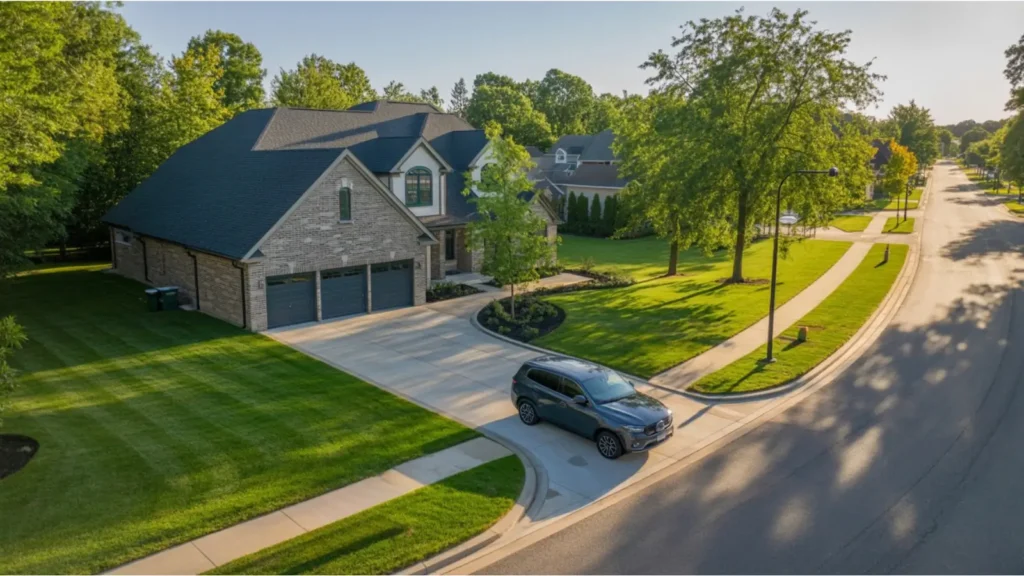Ohio Jumbo Mortgage Guide
What You Need to Know About Jumbo Loans and Lenders
If you’re looking to finance a higher priced home in Ohio, you may need a jumbo loan. This guide explains how jumbo mortgages work, why they matter, and how to find the right Ohio mortgage lender to help you through the process.

What Is a Jumbo Loan?
A jumbo loan is a mortgage that exceeds the conforming loan limits set by the Federal Housing Finance Agency (FHFA). In most counties across Ohio, that limit is around $726,200, but it can vary. Any loan amount above that threshold is considered a jumbo mortgage.
How Jumbo Loans Differ from Conforming Loans
Jumbo loans go beyond the rules of conventional or conforming loans. Here’s how they compare:
- Loan size: Jumbo loans are used when you’re borrowing more than the FHFA conforming limit.
- Investor guidelines: These loans are not backed by Fannie Mae or Freddie Mac, so lenders set their own underwriting rules.
- Interest rates: Depending on your financial profile, jumbo rates can be just as competitive as conventional rates.
- Risk to lender: Because there’s no government backing, lenders are more cautious, which can affect documentation requirements.
Why Choose a Jumbo Loan?
Buying a High-Value Property
If you’re purchasing a home above the conforming loan limit, a jumbo loan may be your only option.
Competitive Interest Rates
Jumbo loans can offer surprisingly strong rates. Many lenders want to work with well-qualified borrowers who are buying or refinancing large loan amounts.
Flexibility for Complex Finances
Jumbo lenders sometimes allow alternative income documentation or consider non-traditional income sources. This can help self-employed borrowers or high earners with complex financial situations.
What Makes Jumbo Loans More Challenging?
Higher Down Payments
Jumbo loans often require at least 20 percent down. However, I have access to options in Ohio that allow as little as 5 or 10 percent down for qualified borrowers.
Stricter Qualification Standards
Expect to show strong credit, stable income, and a low debt-to-income ratio. Many jumbo lenders want to see credit scores of 700 or higher, and some prefer 740 or above.
More Documentation
Jumbo loans typically require two years of tax returns, multiple bank statements, proof of assets, and detailed employment information.
How to Choose a Jumbo Mortgage Lender in Ohio
Compare Rates and Programs
Not all lenders offer the same jumbo loan terms. Working with an experienced mortgage broker like me gives you access to multiple lenders so you can find the best combination of rate, term, and fees.
Apply for a Jumbo Mortgage in Ohio
Choose a Lender with Jumbo Experience
Jumbo loans are not one-size-fits-all. You want a loan officer who understands the details and can guide you through stricter underwriting without unnecessary delays.
Know the Costs
Because jumbo loans are larger and carry more risk for the lender, they sometimes come with higher fees. Make sure your loan estimate outlines every cost clearly, and work with someone willing to walk through each line with you.
Get Pre-Approved First
Before shopping for a high-end home, get pre-approved. It shows sellers you are serious and gives you a clear understanding of your price range and monthly payment.
Is a Jumbo Loan the Right Fit?
Review Your Finances
If you have good credit, strong income, and enough assets for a larger down payment, a jumbo loan may be a smart option.
Ask a Pro
Still not sure? Reach out. I’m happy to walk through your scenario and give you clear answers.
FAQ Jumbo Loans in Ohio
Final Thoughts
Jumbo loans can open doors to properties that exceed conventional loan limits, but they come with extra complexity. That’s why it’s important to work with a loan officer or broker who knows the guidelines and has access to a range of lenders.
If you’re thinking about buying or refinancing a high-value home, reach out. I’ll help you understand your options, compare rates, and navigate every step with confidence.

